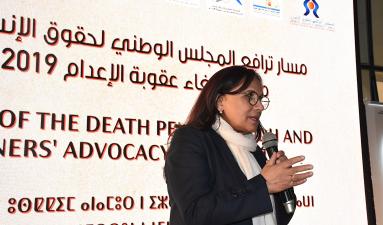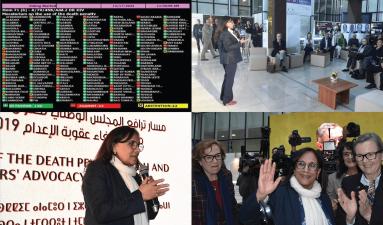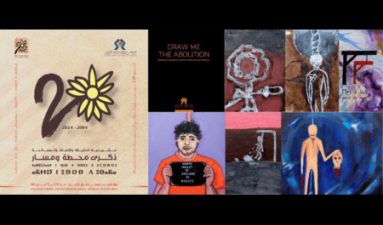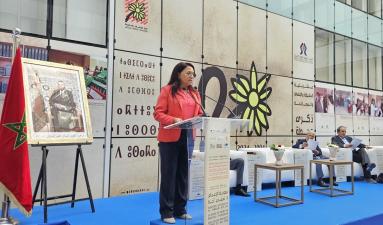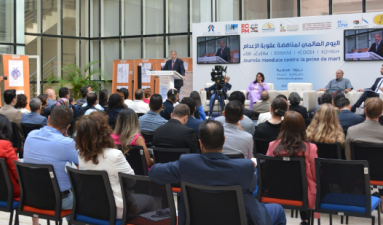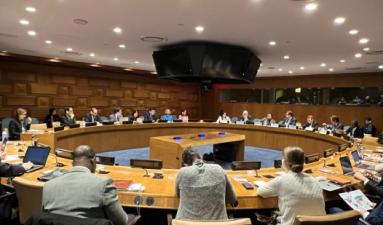Ms. Amina Bouayach, Chairperson of the National Human Rights Council (CNDH), urged that December 2024 should mark an occasion for achieving the long-awaited leap by voting for the abolition of the death penalty in Morocco and actively joining the international momentum in support of the right to life.
This was part of the CNDH Chairperson statement, delivered on her behalf by Mr. Mustapha Najmi, director of the CNDH Promotion Department, at the national seminar on the “Evolution of Penal Policy Over 30 Years of Suspending the Execution of the Death Sentences in Morocco: Achievements, Prospects, and Challenges”.
This event was organized by the CNDH, Moroccan Coalition for the Abolition of the Death Penalty, Moroccan Observatory of Prisons and the French association “Together Against the Death Penalty” on 10 November 2023 in Rabat, Morocco.
Within this context, Ms. Bouayach underscored that the ratification of the Second Optional Protocol to the International Covenant on Civil and Political Rights aims to abolish the death penalty is a significant step towards achieving this goal.
She emphasized that the upcoming discussion of the criminal draft law in Morocco presents another opportunity that should be seized to move towards a more advanced stage. She also called upon all relevant stakeholders, including politicians, elected officials, civil society actors, academics, experts, etc. to engage in this advocacy process from their respective positions to ensure a future free from capital punishment in both text and practice.
CNDH Chairperson noted the positive aspects that Morocco has accumulated during the past three decades when it suspended the application of the death penalty. These include His Majesty’s acts of royal pardon, converting several death sentences into milder penalties.
Furthermore, she drew attention to the fact that the judiciary has followed this tendency, evident in the significantly reduced number of death sentences imposed today, standing at 83 cases. This reduction highlights a clear decline in the number of death sentences compared to the past ten years, placing Morocco in a positive light compared to other countries.
Nevertheless, Ms. Bouayach noted that these positive aspects should not be considered a comfort zone that exempts us from reiterating our call for a more advanced stage, be it in the implementation of international conventions, legislative work, or awareness-raising and influencing public opinion and positions to ensure the right to life.
For this reason, the CNDH has considered the legislative reform related to the death penalty as a key indicator of the extent to which legal regulations governing relationships are both updated and modernized.
Mr. Abderrahim Jamai, Chair of the Bar, facilitated this seminar.
Participants addressed key questions raised by the seminar’s agenda, including:
- The question of the necessity of severe penalties choice in Moroccan criminal policy.
- The history of Morocco’s relationship with international human rights mechanisms and its impact on the development of the concept of punishment.
- The prospect of Morocco ratifying the Second Optional Protocol to the International Covenant on Civil and Political Rights for the abolition of the death penalty.
- The Rome Statute and the Statute of the African Court of Human and Peoples’ Rights.
- The death penalty in Morocco in the light of judicial work, etc.


